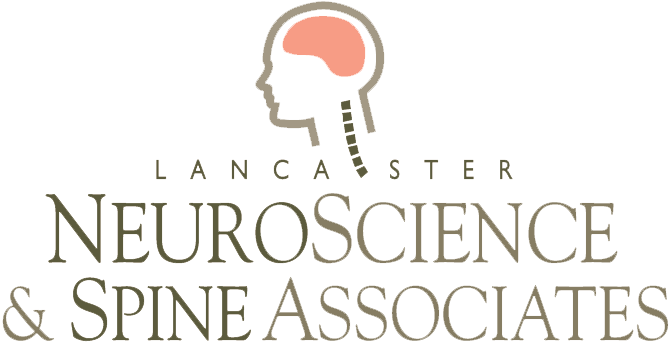Dr. Garrido: Medical Research and Writing Make me a Better Doctor
Dr. Eddy Garrido has performed thousands of brain surgeries in his practice at Lancaster NeuroScience & Spine Associates and he’s been a pivotal force in the delivery of health care in Central Pennsylvania. Currently he is Co-Director of the Lancaster General Gamma Knife Center and he’s held every leadership post in his specialty. But no achievement could ever compete with the satisfaction he receives in caring for his patients every day.
“I never considered being anything other than a physician,” he remarked at the end of a long day in surgery recently. “I gain a deep appreciation for life by working with my patients, listening to them and understanding what they are going through,” he said.
That desire to comprehend his patients’ needs started in his medical school days in his native Dominican Republic. His passion grew during his surgical training in Kingston, Ontario and Tufts New England Medical Center and led him to a Pediatric Neurosurgery Fellowship at The Hospital for Sick Children in Toronto.
Hand in hand with his zeal for treating the ill or injured was his intense determination to further his education, to seek out preeminent teachers and experiences that would make him the best neurosurgeon he could be.
It also made him an esteemed teacher himself. Following his Fellowship, he became Assistant Professor of Neurosurgery and Chief of Cerebrovascular Surgery at Temple University School of Medicine. He now credits those teaching years with instilling in him an even greater appreciation for learning and the wisdom it imparts, a depth of knowledge and judgment that guides his decisions and inspires confidence in his patients.
He’s appreciative of the way his career unfolded and for the discipline that he acquired as a young doctor. Dr. Garrido has applied that learning throughout his life in private practice. He is the author of 23 peer-reviewed articles for the highest regarded publications in his field and has also written chapters for two neurosurgical volumes.
Dr. Garrido’s research papers and collaborations with other neurosurgeons and specialists have appeared multiple times in the prestigious Journal of Neurosurgery of the American Association of Neurosurgeons, and in Neurosurgery, the journal of the Congress of Neurological Surgeons. He has been published in these distinguished peer-reviewed periodicals: Child’s Brain, Surgical Neurology, and Pennsylvania Medicine, and has contributed a chapter to both the Neurosurgical Operative Atlas and Neurosurgery Clinics of North America. He also co-authored Seven Years of Gamma Knife Radiosurgery with the medical staff of the Lancaster General Gamma Knife Center
For The Journal of Lancaster General Hospital
Resarch Plays a Crucial Role in Better Medical Care
Most people would be daunted just reading the bibliography of Dr. Garrido’s published works, with titles like Middle Cerebral Artery Embolectomy, Lumbar Disc Disease in Children, The Modern Treatment of Intracranial Aneurysms, and The Neurosurgical Treatment of Pain in the Cancer Patient, to name a few.
But patients and families touched by brain illness or injury are the beneficiaries of such research, which can positively impact their medical care and quality of life by introducing ground breaking treatment options.
“Reading journals and hearing surgeons present papers at meetings may not sound very exciting,” says Dr. Garrido, “but such experiences are the instruments that change medicine. The incentive to write comes out of some clinical situation that I experience,” he explains, “and that draws me to do research based on specific occurrences.”
“Usually it works this way,“ he went on, “I’m taking care of a patient and doing surgery, and I come to the realization that I did something that was a little different or something happened that caught my attention and I think it‘s something that not too many people are aware of. That is my incentive to generate the information to put out there for other doctors, so they can benefit from my experience,” he said.
“Let’s say that I do a hundred cases using Gamma Knife radiosurgery for people who have trigeminal neuralgia (a facial nerve pain disorder),” he continued. “I see results that I am getting, I can go back and look at all the work that has been done, compare my results, and I can say, ‘well the way I do it, maybe it would be better to do it this way.”
“That is the value of journals. I am always reading about all the things that I am doing from day to day and I will often come across something that makes me realize ‘I need to change the way I do things’, or ‘I feel that I can contribute something to other doctors that they haven’t been aware of’,” he said. “By sharing our experiences and writing about them we contribute to the existing bank of knowledge. We can impact each other’s choices, methods and results,” Dr. Garrido concluded.
“In the process of bringing our experiences to light, we become better doctors.”




